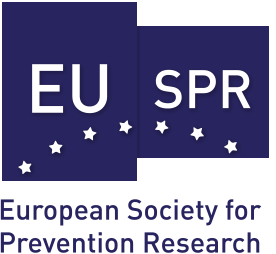Speaker
Description
Authors: Larissa de Almeida Nobre-Sandoval (European Institute of Studies on Prevention (IREFREA)/ Brazilian Association for Research in Prevention and Health Promotion (BRAPEP)), Montse Juan Jerez (European Institute of Studies on Prevention), Miquel Àngel Guererro (Director of FAPA Mallorca (Federation of Parents’ Associations of Mallorca)), María Dolores Franco Carnero (Representative of the Family Organization Plataforma de ampas de la Escuela Pública Niñ@s del Sur), Elisabeth Pernía Fernández (Representative of the Family Organization AMPA of CEIP Vista Alegre), María Dolores Varo Vega (Representative of the Family Organization AMPA Coral I.E.S Rafael de la Hoz), Blas Pérez Prieto (San Luis Primary Care Center, Department of Health of Torrevieja, Generalitat Valenciana), Mariàngels Duch (European Institute of Studies on Prevention)
Background: The FERYA program (Active and Networked Families) is a community-based environmental prevention strategy that empowers family organizations (FOs) to advocate for youth wellbeing and preventive rights. Implemented in several regions in Spain, since its development in 2012, this case study focuses exclusively on Córdoba’s development, from a difficult first attempt in 2020 to the establishment of a local team in 2024 actively participating in local decision-making.
Methods: This qualitative case study draws on documentation and meeting reports from 2024–2025. The data were analysed using the FERYA logic model framework, focusing on proximal, intermediate, and distal outcomes. Key activities and stakeholders involvement were mapped across phases.
Results: After the FERYA Workshop in October 2024, a stable and engaged local team emerged, including parent associations, community leaders, public administration professionals, and prevention experts. Within months, they established communication with Córdoba’s City Council, and families are now on track to be formally included in local prevention governance. The group critically evaluated official programs and successfully opposed alcohol industry-led interventions in schools, notably achieving the rejection of the “Menores ni una gota” campaign in multiple school councils. Their vigilance also led to the revision of a municipal campaign that initially promoted “responsible drinking” to youth. The team has improved its capacity to identify harmful messaging, raised public awareness, and encouraged more critical attitudes toward prevention practices. A participatory mapping of youth leisure activities is underway.
Discussion: The Córdoba case study shows how bottom-up strategies like FERYA can lead to institutional influence, community vigilance, and policy shifts. It highlights the potential of family organizations when acting in coordination as key stakeholders in environmental prevention, and emphasizes the importance of long-term investment in prevention literacy and the recognition of organized family collectives as legitimate actors in local public health governance—built through co-constructed processes with public administration and prevention experts.
| Conflict of interest | The lead author works as a prevention expert and facilitator within the FERYA program and receives financial compensation for this role. In addition, the second author, third co-author, and last author are part of the team involved in the development of the FERYA program. All other authors declare no conflict of interest. |
|---|

